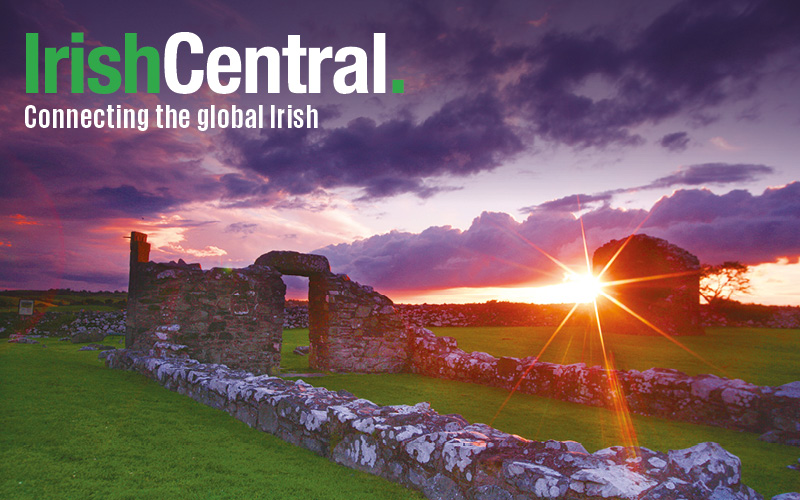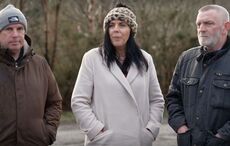Coogan Tells All
AUTHOR Tim Pat Coogan, former editor of the Irish Press, has a new autobiography out, simply entitled A Memoir, which contains many interesting nuggets about his work on the peace process.
Coogan quite simply is the world's leading authority on the IRA, and his book is a fascinating insight into how the peace process came about. It is available for sale on Amazon.
The book reveals for the first time that it was Coogan who was chosen by peace process priest Father Alec Reid to make the initial contact with the Irish government on behalf of Sinn Fein.
Reid is the unsung hero of the process, a Belfast priest who first put together the Irish government, Sinn Fein and the SDLP. He deputized Coogan to go and speak with then Taoiseach (Prime Minister) Charles Haughey, who had been throwing shapes about getting involved.
As Coogan relates it, Haughey was suspicious at first of any overture from Sinn Fein but gradually warmed up when the contact continued. He was in opposition at the time, but the Sinn Fein leadership clearly felt that he was somewhat sympathetic to them.
It is hard to put into context just how vital that first contact was. Without the Irish government there was no possibility of any progress.
As Coogan delineates, the Fine Gael/Labor government of Garret FitzGerald would never have countenanced an approach from Sinn Fein as Fianna Fail did.
When Haughey came into power, as Coogan relates, he proved a disappointment and it was not until Albert Reynolds replaced him that the real work began.
Coogan speculates that the British Intelligence services had something on Haughey, perhaps evidence of his corruption which would only emerge years later. He may well have been right as Haughey was certainly far more timorous in office than he might have been.
How Adams Decided
COOGAN traces the Adams evolution towards politics away from war to a car journey in 1985 that Adams and two senior Sinn Fein officials, Tom Hartley and Jim Gibney, undertook.
Adams explained the unarmed strategy to them, how the war needed to be wound down and how the future might look if Sinn Fein gained significant political power.
It was amazing stuff. At the time the IRA seemed set on an irretrievable course of continuing the armed strategy forever. Adams, himself a former militant, was now suggesting another path entirely.
Hartley became so excited he pulled over the car and told Adams, "Why don't you go to the IRA and put that strategy to them." Gibney strongly agreed.
Of course it would take many turns and twists in the road before the peace process was delivered, but Coogan says that first car ride back in 1985 was possibly the most significant moment of all.
Kennedy Agrees To Adams Visa
COOGAN also relates a wonderful story about Senator Edward Kennedy and his sister Jean Kennedy Smith coming to visit him in his Killiney, Co. Dublin home in the run up to the Adams visa decision.
Jean, then U.S. ambassador to Ireland, was convinced that Adams should receive a visa, but she wanted Teddy to be convinced too and asked Coogan to do the business.
Thus it was that Coogan opened his door one wet day in 1994 and found the senator and the ambassador both incognito outside.
A long dinner and much drink was consumed, and in the course of the evening Kennedy and Coogan took a stroll in a nearby beauty spot overlooking the Irish Sea.
Strangers did a double take, of course, spotting Senator Kennedy on their street. Coogan says he got such a warm reception that he truly believes it helped convince him.
From that day onward Kennedy was a critical part of the Adams visa strategy.
Irish Press
THE book is also revealing on the truth behind the American money that went to founding the Irish Press newspaper owned by Eamon de Valera.
The Press newspaper group is now long gone, but Coogan shows how de Valera used funds gathered among working class Irish Americans for the war effort in Ireland to instead start a paper that he himself owned.
It is all water under the bridge now, but the death of the Irish Press was an exercise in gross mismanagement by the de Valera family as Coogan readily outlines.
Its absence is still felt as the lone Nationalist voice at a time when British tabloids are everywhere nowadays in Ireland.




Comments